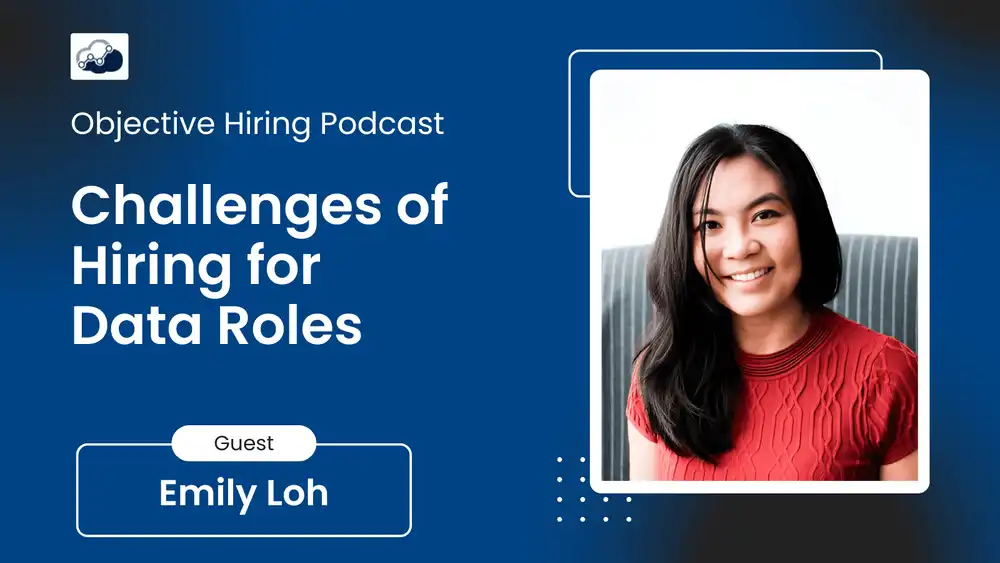Emily Loh Shares Her Insights on the Role of Intuition and Bias in Hiring

The role of intuition, subjectivity, and bias in hiring is an ongoing debate among talent acquisition professionals. In her recent conversation on the Objective Hiring podcast, Emily Loh, Director of Data, addressed these nuanced aspects of the hiring process with Tim Freestone.
Emily emphasized that cultural fit interviews play varying roles depending on company size and structure. Smaller companies, especially startups, greatly benefit from considering cultural fit due to their fast-paced, collaborative environments:
“You really have to trust the person next to you. Cultural fit becomes extremely important for that situation because you have to trust that person—it leads to trust.”
However, she acknowledged the potential conflict between cultural fit and diversity, advocating for clear company values to reconcile this tension. Emily suggested that clearly articulated organizational values can guide hiring decisions objectively, helping avoid unconscious biases that may arise:
“As long as you're pinning to the values, you can still hire for diversity. As long as those values are present, that makes a big difference.”
Emily openly discussed how intuition and subjectivity, while often viewed negatively, can positively complement quantitative methods. She argued that a certain level of instinctual judgment is necessary, especially in early-stage hiring, as long as it remains transparent and reflective:
“Instinct actually counts for a lot. Your instinct and your experience inform that first approach where you intuitively know the way you should go.”
To mitigate bias, Emily recommended structured cultural assessments, clearly defining what cultural fit means beyond subjective interpretations. This structured approach ensures consistent, transparent, and fair evaluations, aligning hiring decisions with strategic business needs rather than personal preferences.
During the podcast, Emily recounted personal experiences highlighting successful and unsuccessful hiring decisions influenced by subjective evaluation methods. These anecdotes illustrated how critical it is for both employers and candidates to maintain candid communication and transparency throughout the hiring process.
Emily believes transparency can significantly enhance the hiring experience for candidates. She discussed how often candidates receive minimal feedback, causing unnecessary stress and confusion:
“Candidates usually get minimal feedback, which makes rejections harder. If they knew the reasons—which often are simply timing or experience-related—it would lessen the emotional impact.”
Reflecting on evolving attitudes in the workplace, Emily noted that the newer generation prioritizes transparency, fairness, and a more personal recruitment experience. She predicts ongoing shifts in recruitment practices as younger generations rise to leadership roles, bringing new perspectives and expectations.
For organizations looking to refine their recruitment practices, Emily’s insights advocate a balanced, thoughtful approach—one that leverages intuitive judgment alongside structured evaluations to create a more inclusive, effective hiring process.
To further support objective hiring processes and minimize biases, platforms like Alooba offer practical solutions, enabling precise skills assessments and structured evaluations, ultimately supporting more equitable hiring outcomes.
Listen Now to gain deeper insights from Emily Loh on effectively balancing intuition and structure in hiring.